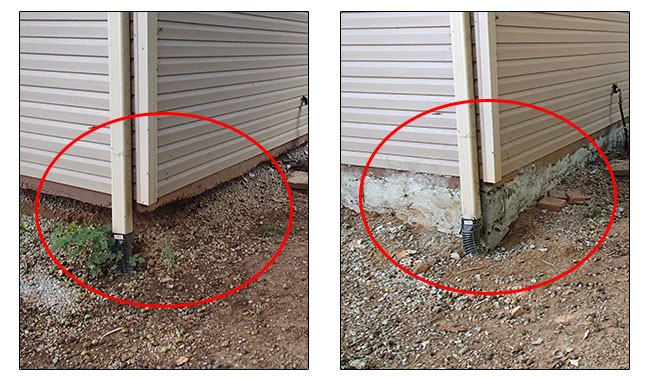How Do Homeowners Get Their Houses Ready for a Foundation Inspection?
For homeowners, foundation problems may be a nightmare. It may be expensive and risky to deal with the fallout from a damaged foundation, from broken walls to sinking floors. Regular foundation inspections are essential to identifying foundation issues early on and preserving the structural integrity of your house. However, homeowners may prepare their houses for a foundation inspection before a professional visit.

Clear the Area Around the Foundation
It is crucial to remove any debris or obstructions from the area around your home's foundation before the foundation inspection. Debris, leaves, and other overgrown plants must be removed. A readily accessible and unobstructed foundation facilitates the inspector's ability to survey the whole space and detect any problems with more ease.
Document Visible Signs of Foundation Problems
Make a note of any obvious indications of foundation problems in your house that you come across. These could be gaps around window frames, doors or windows that stick, uneven flooring, or wall fissures. During the inspection process, notes and photos may be very helpful in assisting the inspector in determining the extent of the issue.
Grant Entry to the Basement or Crawlspace
Make sure the entry to any basement or crawlspace in your house is simple to get to. Eliminate everything that might obstruct the inspector's way. To enable a comprehensive inspection of the foundation, adequate lighting and ventilation in these sections are also crucial.
Make a List of Concerns and Questions
Make a note of all the queries and worries you have about your foundation. This will guarantee that all of your concerns are taken care of during the inspection and allow you and the inspector have a fruitful dialogue. Inquire about plausible reasons for foundation issues as well as suggested fixes.
Shift Personal Items and Furniture
Relocate personal belongings and furniture away from walls to make the inspection process easier. This will assist the inspector find any cracks or structural problems and provide a good picture of the inside foundation walls. Additionally, it's a great chance to tidy your house.
Ascertain Sufficient Drainage
Proper drainage is necessary for a strong foundation. Verify that water is being directed away from the foundation by your gutters and downspouts. In order to avoid water collecting at the base of your property, which may lead to foundation difficulties, take quick care of any drainage issues.
Determine the Age of Your House
The inspector may learn a lot about your house from its age. Understanding your home's historical background may help you anticipate possible foundation problems that may develop as it ages. Different building techniques and materials have been employed in the past.
Create an Inspection Process Plan.
Depending on your home's size and complexity, foundation inspections may take some time. As a result, schedule a certain amount of time for the inspector to complete their duties. Being there during the inspection is also a good idea in order to better comprehend the results and ask questions.
Conclusion
Getting your house ready for a foundation inspection is a proactive way to keep your property's structural integrity intact. Homeowners must evaluate their foundations to spot issues early and prevent expensive repairs. Being proactive and cooperating with a competent inspector will assure your home's stability and safety for years. Protect your largest investment, your house, by acting now. Don't wait until foundation problems become a big hassle.
Post Your Ad Here
Comments